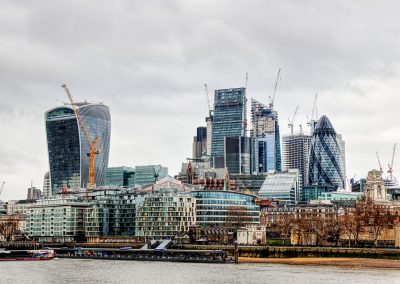
Increasing Property Taxes
In 2014, the chancellor put stamp duty on a sliding scale, based on the cost of the property. Any purchases over £937,000 resulted in higher stamp duty payments under the new system and given that the average London property price is £486,000, a significant part of the capital’s property market was affected. Adding insult to injury, in 2015, an additional 3% stamp duty tax on properties bought for buy-to-let and second homes was introduced. The result of all of this was to deter sellers – instead of incurring the hefty taxes, London homeowners have been sitting tight.
Tenants With Teeth
The balance of power between landlord and tenant is changing with tenants having more and more power under the Rental Repayment Order (RRO) scheme. There is a myriad of conditions under which a tenant can apply for an RRO if a landlord steps out of line.

Rising Interest Rates
The Bank of England’s decision to raise interest rates by 0.25% from 0.5% to 0.75% isn’t helping either and is likely to trigger further market softening. It’s not the actual hike in rates which is biting – it’s a pretty modest increase after all – what matters is the message it sends about future direction of travel when it comes to borrowing costs.
An Increasingly Risky Investment
Prices had got too high with London’s ‘affordability ratio’ (average property price divided by average income) reaching 15x – way out of whack with cities elsewhere in the UK where comparable ratios are nearer 5x and, therefore, look like more attractive investments. London is now one of the worst areas in the UK for buy-to-let investors, according to research from credit report and comparison firm, Totallymoney. Their research found that five postcodes in north London had rental yields as low as 1.5% so it’s hardly surprising that investors are turning their back on the capital.
Landlords Getting Hit By New Regulation
- Since April this year, all properties have been required to comply with Minimum Energy Efficiency Standard; those that don’t meet the minimum Energy Performance Certificate ratings can’t be leased out.
- There is a government proposal is to prevent letting agents from charging fees to tenants. If it goes ahead, it will almost certainly mean agents will make landlords pay up instead.
- A new ombudsman scheme is being established to regulate the hitherto lax buy-o-let market. Landlords will be obliged to join the scheme, which will protect tenants in the case of disputes.
- And finally, mortgage interest tax relief continues to be whittled down; it’s been cut to 50% since April this year and will be halved again in a year’s time until it is eliminated in 2020.
The B Word
Brexit may mean Brexit, but it also means a fall off in overseas buyers. Uncertainty surrounding Britain’s exit from the European Union has hit London the hardest. Upmarket estate agent, Savills, just posted an 18% drop in half-year profits on the back of sharp falls in both commercial and residential deals; they confirm that the lack of certainty over the Brexit negotiations are making it hard to predict what the future will hold and are acting as a drag on international investment.
So while longer-term prospects for the London property market may still look interesting – particularly after the correction it has seen – the UK’s volatile political climate has definitely dented hit investor confidence and, for now, many investors are happy to give London a wide berth.
http://www.theweek.co.uk/london-house-prices
https://www.gov.uk/government/collections/uk-house-price-index-reports#about-the-uk-hpi
https://www.theguardian.com/business/2018/aug/09/brexit-isnt-helping-profits-dive-18-at-savills
https://www.propertyweek.com/comment/is-the-london-market-brexit-proof/5097342.article
http://www.totallymoney.com/buy-to-let-yield-map/
https://www.ft.com/content/3592eb7e-3e41-11e8-b9f9-de94fa33a81e
https://www.theguardian.com/commentisfree/2017/aug/24/landlords-tenants
https://unsplash.com/photos/mOEqOtmuPG8
https://unsplash.com/photos/Yn9LiXt53jQ
https://unsplash.com/photos/4w6aeowShx0


